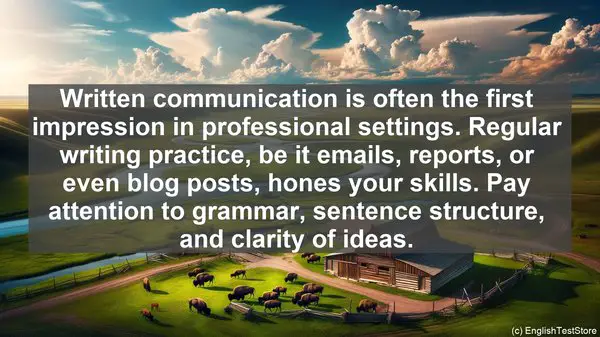Introduction: The Importance of English in Professional Networking
Today, we’re diving into the world of professional networking and how mastering English at the B2 level can give you a competitive edge. In today’s globalized workplace, effective communication is key, and English remains the lingua franca of business. So, let’s get started with our top 10 tips!

1. Expand Your Vocabulary: Industry-Specific Terms
To communicate effectively in any field, it’s crucial to understand and use industry-specific vocabulary. Whether it’s finance, marketing, or technology, familiarize yourself with the jargon. Online resources, specialized dictionaries, and even podcasts can be great learning tools.
2. Reading: Diverse Materials for Language Exposure
Reading isn’t just for pleasure; it’s a powerful language learning tool. From news articles to business journals, expose yourself to a variety of written materials. This not only enhances your vocabulary but also improves your understanding of different writing styles.
3. Writing: Practice for Precision and Clarity
Written communication is often the first impression in professional settings. Regular writing practice, be it emails, reports, or even blog posts, hones your skills. Pay attention to grammar, sentence structure, and clarity of ideas.
4. Listening: Active Engagement for Comprehension
Listening isn’t just about hearing; it’s about active engagement. Watch TED Talks, podcasts, or even business webinars. Take notes, summarize, and discuss the content. This trains your ears to different accents and improves your overall comprehension.
5. Speaking: Fluency and Confidence
Speaking confidently is often a challenge. Practice with language partners or join conversation clubs. Engage in role plays, debates, and presentations. The more you speak, the more your fluency and confidence will grow.

6. Cultural Awareness: Beyond Language
In the global business world, cultural sensitivity is vital. Different cultures have varying communication styles and etiquettes. Read about different customs, traditions, and business practices. This understanding will help you navigate diverse professional settings.
7. Networking Events: Preparation is Key
Attending networking events can be nerve-wracking, but preparation can ease the anxiety. Research the attendees, have your elevator pitch ready, and prepare some open-ended questions. This shows your interest and helps initiate meaningful conversations.
8. Active Listening: The Key to Meaningful Conversations
In networking conversations, active listening is crucial. It’s not just about talking; it’s about understanding the other person’s needs and interests. Ask follow-up questions, show genuine interest, and maintain eye contact. This builds rapport.
9. Professional Emails: Concise and Polite
Emails are a common mode of professional communication. Keep them concise, to the point, and polite. Use formal language, proofread for errors, and always respond in a timely manner. These small details reflect your professionalism.
10. Continuous Learning: Language is Dynamic
Finally, remember that language is ever-evolving. Stay updated with the latest trends, phrases, and idioms. Join online language communities, follow language blogs, and never stop learning. It’s a journey of constant improvement.
